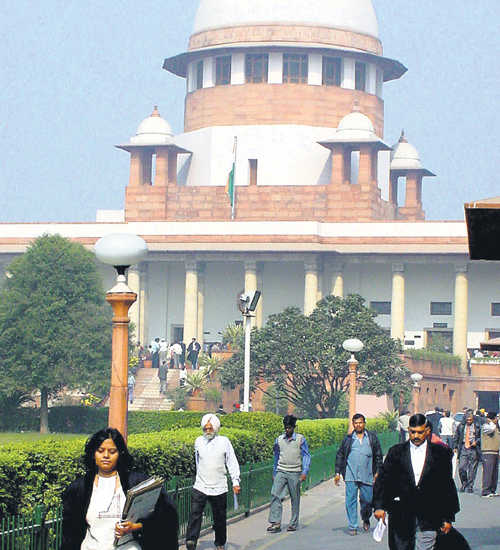
Justice Kamaljit Singh Garewal (retd)
Soon the National Judicial Appointments Commission (NJAC) will start selecting Supreme Court and High Court judges. It is everyone's fond hope that this will be done in a more open and balanced manner. The commission will be chaired by the Chief Justice of India and will have as its members two senior-most Supreme Court judges, the Minister of Law & Justice and two eminent persons. What has really been created is an expanded collegium, though not quite a public service commission for selecting judges.
The manner of selection of judges of the subordinate judiciary and members of the all-India services is altogether different. No collegiums are at work here, it is a pure and simple competitive selection. Quite similar to the selection of IAS/IFS/IPS/Central Services officers by the UPSC and PCS/PPS/Allied Services officers by state public service commissions.
There is still uncertainty regarding the selection procedure which the NJAC may follow. So far there is nothing to indicate whether candidates would be invited to apply, write an examination and be interviewed. Therefore, what we are going to get is selection by a modified or extended collegium dominated by the judiciary but it may not be based on a competitive selection process. So why is there still criticism that the NJAC will impinge on judicial independence.
Independence of the judiciary is a misunderstood concept. Judges do not need independence to take the right decision without “fear or favour”, “affection or ill will”. What these terms in the judge’s oath mean is that judges shall be fearless, fair without favouring any one party, shall not decide on the basis of affection towards a party or his lawyer and display goodwill towards all. These are constitutional duties of a judge and are much more important than judicial independence. In the context of judging, independence of the judiciary gets covered if judges stick to their oath.
More than fearlessness, fairness, goodwill towards all, what judges do need is learning, intellect, ethics and courage to do justice. One would expect that these are the qualities that the NJAC would be looking for when deciding on the merits of candidates. This would be a practical approach for selecting judges, and has nothing to do with independence of the judiciary. Then why is independence of the judiciary dominating the debate on judicial selection process to the extent that the other great qualities of judges have a tendency to be side-lined? In the ultimate analysis judging is about taking a decision based on law. The judgment should be legal, based on facts, and reached in a fair and impartial manner.
Independence of the judiciary should not confound us. Every judge is expected to be independent. He decides cases in accordance with law, as applied to the facts of the case presented before him. He is not concerned with the opinion of his superiors, unless these opinions are judicial precedents. But he is not at all concerned with what the political masters want. Occasionally, some judges decide on a whim, a hunch or on some pre-conceived notion like all capitalists (or socialists) must be taught a lesson or all rapists must be hanged. This tendency should be curbed but such independence of judgment is not judicial independence at all.
All judges are expected to be honest, hard working, abreast with the law, fair, impartial, compassionate, quick in disposal of cases, clear in writing their judgments. In addition they are also expected to be independent.
Judges select district and civil judges. They look for qualities which will make the candidate a good judge. Then depending upon the vacancies, the best candidates are selected. After the selection the candidate develops his skills, the power of judicial reasoning, and gets trained in judging at the Judicial Academy. The selection procedure has nothing to do with independence of the judiciary unless it means that judges are independent in ignoring the procedure while making their choice.
The present collegium system of selection is decidedly opaque. Candidates can be selected, and some unfairly rejected, without any objective assessment of merit. On the other hand the selection of civil servants, based on a written examination, assessment of qualifications and a formal interview, is a merit-based selection.
It won't help if we get embroiled in the doctrine of independence of the judiciary while debating the selection of judges. Only judicial functions require independence, selection of judges requires independence of a different kind, like the independence enjoyed by the Union Public Service Commission. The NJAC in the present form will be able to select capable superior court judges from the Bar, the judicial service and academia, independently, fairly and impartially but undeterred by the judicial independence doctrine. If the selection panel has a few non-judicial members, it will enhance its reach, scope and respectability, in the eyes of the citizens. Two eminent, respectable, honest persons should not be difficult to find. One could have former Presidents or Prime Ministers as eminent persons or eminent lawyers/ parliamentarians/law professors. The NJAC will have enough inputs about the candidates before it and will definitely give us good judges.
Let us not scuttle the NJAC before it has even taken off.
The writer is a former Judge of the Punjab and Haryana High Court, Chandigarh



























